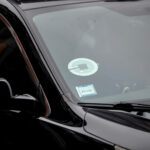With the cautious support of North Carolina’s tobacco manufacturers, a House committee approved a bill Tuesday that would require the companies to make and sell cigarettes that burn out if left unattended.
The so-called “fire-safe” cigarettes are rolled in special paper with two bands of less porous material that smother the burning tobacco unless someone is actively smoking it. The bill would bar the sale of any other type of cigarette in North Carolina.
Chapel Hill Fire Chief Dan Jones said such cigarettes might have prevented a pre-dawn fire that killed five students at a University of North Carolina fraternity house on graduation morning, May 12, 1996.
The flames began in a basement trash can, where discarded smoking material smoldered overnight, he said.
“None of those five participated in the smoking in the basement the night before, yet they lost their lives,” Jones said. “This is a true public safety bill. … This is a bill that will save the lives of smokers and nonsmokers alike.”
The bill, which also outlines testing methods and performance standards for self-extinguishing cigarettes, was approved by the House Judiciary I committee. It will go to the House Finance Committee before a vote in the full chamber.
The measure is modeled on legislation passed in New York state and adopted in more than a dozen other states – most recently Iowa, Oregon and tobacco giant Kentucky – and Canada, according to the Coalition for Fire-Safe Cigarettes.
The organization, which is promoting the legislation nationwide, says cigarettes are the leading cause of fatalities in U.S. home fires, responsible for 700 to 900 deaths a year.
In North Carolina, discarded smoking material is the leading cause of structure fires – mainly in homes – and causes half of the fires in which someone dies, Insurance Commissioner Jim Long and other experts told the committee Tuesday.
They said fire-safe cigarettes won’t prevent all such fires, but will cut down dramatically on their number by reducing the length of time that a discarded butt smolders.
“Seventy-five percent of the cigarettes, when they’re dropped, will continue to burn for up to 45 minutes,” said Adam Goldstein, an associate professor of family medicine at the UNC Chapel Hill School of Medicine. “It’s that long-lasting impact that creates the fire, not the short one.”
Results from other states where similar legislation has been enacted indicate that North Carolina could see a 75 percent drop in residential fire deaths if the state allows the sale only of fire-safe cigarettes, said Marcus Plescia, chief of the chronic disease and injury section in the state Division of Public Health.
Lobbyists for several tobacco companies with factories in North Carolina said they are comfortable with the legislation as long as it gives them time to modify their manufacturing lines.
Sandy Sands, who represents Phillip Morris, said the company would prefer a nationwide standard requiring fire-safe cigarettes, but accepts the New York-modeled legislation for now.
Was this article valuable?
Here are more articles you may enjoy.

 Judge Upholds $243M Verdict Against Tesla Over Fatal Autopilot Crash
Judge Upholds $243M Verdict Against Tesla Over Fatal Autopilot Crash  Red Flags Adjusters Should Look for in Truck Accident Claims Investigations
Red Flags Adjusters Should Look for in Truck Accident Claims Investigations  Stellantis Weighs Using China EV Tech for Affordable Cars
Stellantis Weighs Using China EV Tech for Affordable Cars  Taxi Insurer Failed to Defend Uber in Crash Cases, Judge Says
Taxi Insurer Failed to Defend Uber in Crash Cases, Judge Says 